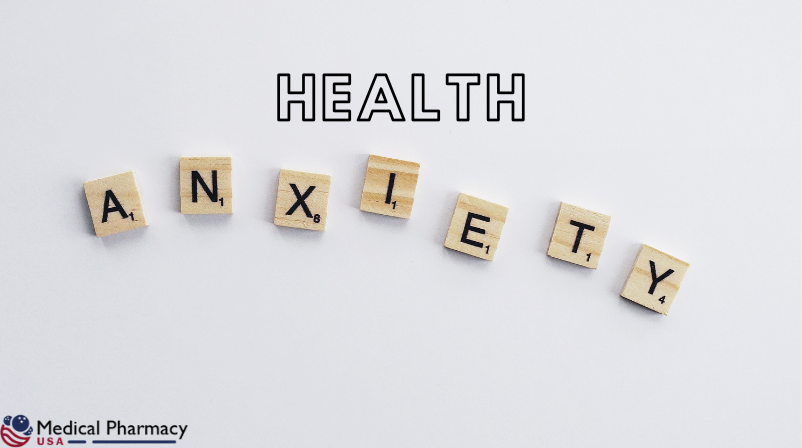
Health anxiety is an obsessive and usually unreasonable worry about suffering from severe medical positions. It is more formally known as illness anxiety and used to be called hypochondriasis.
Someone who experiences health anxiety will possess over their health: from their usual body uses to contracting illnesses and diseases. They may periodically visit their physician or spend significant time reading about their signs and possible conditions.
In severe cases, health anxiety may become disruptive to a person’s life. It can conflict with their daily actions, hurt their work performance, and even cause straining relations. Fortunately, there are methods that you can cope with your health anxiety, including:
Read on to study more about each of these coping methods in further detail alongside therapy options for health anxiety.
People with health anxiety will frequently focus on a particular part or function of their body. The more they focus on the part of their body, the more they notice physical sensations that may trigger worrying thoughts.
These original thoughts can trigger anxiety, in turn causing different physical sensations. At this point, the person may start to believe their anxiety acknowledgment is further evidence of physical symptoms. You may see how this forms a cycle of worrying. This cycle is called rumination.
If you observe yourself becoming too focused on a different worry, it is crucial to redirect your notice to something else. One of the most sincere ways of accomplishing this is to turn your focus to an action, such as;
Although the activity, the goal is to pay full consideration to what you are doing. For instance, if you’re gardening, notice the sounds throughout you. Note how your implement feels as it digs into the soil. Listen to the sloshing noises of the watering can and feel its influence in your hands. By putting our full attention into a task, we can pull our minds away from our worrisome dreams.
Sometimes, though, this approach may be less practical. For instance, if you are lying in bed attempting to sleep but find yourself growing stuck on a particular worry. In these circumstances, we can learn to exercise mindfulness practices that will help us to break out of our ruminations.
Mindfulness is the habit of paying attention to our surroundings, thoughts, and actions in a purposeful way. While the method is rooted in meditation, it has become frequently helpful in therapy.
The practice of mindfulness-based cognitive therapy (MBCT) is beneficial for individuals suffering from health anxiety. So, how can you combine mindfulness into your daily life? There are several activities you can try.
Mindfulness 5-4-3-2-1 Exercise
Look nearby your current surroundings and identify;
Going through this practice helps to ground you in the contemporary significance and the environment. While simple, it can assist in pulling your focus away from considering thoughts. It is also an exercise that you can do anywhere at any time.
Listen To Music
This approach might seem too simple to practice, but the key is to listen mindfully. What does that involve?
While receiving, try not to go directly into “autopilot.” Instead, actively listen. Concentrate on the lyrics, if there are some. Try to distinguish individual instruments. Imagine the sounds or information in your mind. This activity can help draw your consideration to the present moment.
Opinions are not facts. They are just feelings, and they do not have to be accurate or based on actuality. However, when we meditate, we start to believe our thoughts follow reality. For instance, people with health anxiety may usually worry about their hearts.
They may believe their chest or their heartbeat feels off, directing them to think, “There is something wrong with my heart.” It can turn into, “I have a severe heart condition.” Ultimately, they may even remember, “I have a heart condition, and I’m going to die.” The difficulty here is not that they are severely ill; the problem is that they believe they are seriously sick.
When we meditate, our thoughts can express our perceived presence. In other words, we accept our opinions as facts. Instead, we are required to adopt a method known as cognitive defusion.
Cognitive defusion guides us to recognize and challenge our negative feelings. Once a concept like “There’s something incorrect with my heart” has been identified, you can reframe and challenge it. For example, thinking instead, “I’m only telling myself that there is something incorrect with my heart.” This method of identifying and exciting takes practice. It helps to work intimately with a licensed psychiatrist or therapist to improve coping techniques.
Tags: Challenge Your Worrying Thoughts, Change Your Focus of Attention, COVID-19, Dealing with Health Anxiety During this COVID-19 Pandemic, Health Anxiety, Practice MindfulnessCopyright © 2023 blinknature.com All Right Reserved.

Hello there! I could have sworn I’ve been to this blog before but
after going through a few of the articles I realized it’s new to me.
Nonetheless, I’m definitely pleased I discovered it and I’ll
be bookmarking it and checking back often!
Pretty great post. I simply stumbled upon your blog and
wished to say that I’ve truly loved browsing your weblog posts.
After all I will be subscribing to your feed and I am hoping
you write again soon!
Thanks very nice blog!
If you want to grow your experience just keep visiting this
web page and be updated with the hottest information posted here.